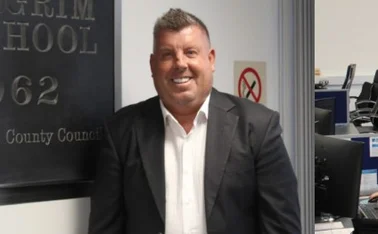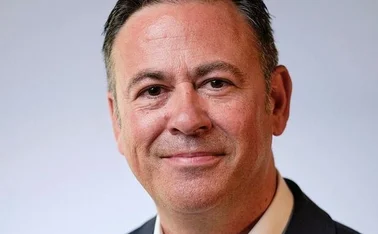
Opinion: It’s good to talk

The time is right to break the silence over mental health in the workplace, writes Siân Barton
You may remember a few issues ago I called for sector leaders to put their heads above the parapet when it came to talking openly about mental health.
So, after a few months of hypocritical silence and niggling in the back of my mind, it’s time for me to talk about some of my own issues and how I have been supported in my workplace.
I occupy a unique position within the insurance sector as the editor of a well-read and respected, careful platform in Insurance Age and I’m going to take my own advice.
It isn’t easy to talk about this publicly. There are many factors to consider:
- Will my colleagues lose respect for me?
- Will the market?
- Will it affect future career prospects?
- Might the pressure of talking about it make things worse?
There are a myriad of concerns in addition to the above but somebody has to start, so here goes.
Last year I was diagnosed with severe depression and anxiety. To be fair, it had been a long time coming but, prior to taking on the editorship of Insurance Age, I had the time and the space to strategically ‘manage’ it.
Symptoms, according to the NHS, include: exhaustion, low self-esteem, hopelessness, inability to enjoy things, intolerance/irritability, lacking motivation, and an inability to make decisions.
I did my level best to hide this as much as possible.
I am lucky, and grateful that my problem was treated in a fuss-free and fair way… What I want to do now is open the discussion
An editorship is no small thing and takes time, consideration and thought to do a good job. To add to that, I started doing a long commute and took the plunge and bought a house, which required a lot of work, all on my own, and also managed to train for and complete the InsurTrek.
Overwhelmed
These should all be viewed as achievements but if an illness such as depression is your default state, and getting worse, you can’t see that. Instead, I was overwhelmed with thoughts of what an exceedingly bad job I was doing, how the publication had been put in terrible hands, how the work wasn’t good enough and how badly I was managing everything.
I don’t know if this was noticeable from the outside as my work was always done, deadlines were always met and I don’t think I missed a day in the office, but I felt like a burden and am grateful to my colleagues who continued to produce outstanding work. They deserve the highest praise for doing that and tolerating the personality changes that come with a chronic ongoing depression.
Somehow, like an automaton, I kept on as many unwell people do. Limping home to Christmas, I finally admitted that help was required. So I saw a very compassionate GP who put me on medication and suggested a course of talking therapy (the two combined are thought to be more effective).
At that point I told my boss as I had to leave early on Monday afternoon for a series of regular medical appointments. I was pleased to find I was treated the same as if the problem had been a physical one. I’m not sure how I would have accessed this therapy had I not felt comfortable enough to explain the situation to my manager.
The business also offers an employee assistance programme. I didn’t take it up as I found my own providers but if there is one available to you, and you are having issues, I would suggest you utilise it. The services are confidential.
Had I thought I wouldn’t be supported in this way, I may not have sought help and that is the point. I felt safe enough to explain what was happening and take the help on offer.
But there still needs to be a more open discussion around mental health in the workplace and more people need to start speaking out to erode the stigma.
To those who are struggling, do seek help. To those who have struggled – talk about it, explain how you were helped and foster an open environment.
I am lucky, and grateful that my problem was treated in a fuss-free and fair way.
What I want to do now is open the discussion. Not to enable a ‘get out of jail free card’ for those who aren’t performing but highlight that problems can be overcome with a little support from the place people spend the majority of their day.
Siân Barton is editor of Insurance Age
Only users who have a paid subscription or are part of a corporate subscription are able to print or copy content.
To access these options, along with all other subscription benefits, please contact info@insuranceage.co.uk or view our subscription options here: https://subscriptions.insuranceage.co.uk/subscribe
You are currently unable to print this content. Please contact info@insuranceage.co.uk to find out more.
You are currently unable to copy this content. Please contact info@insuranceage.co.uk to find out more.
Copyright Infopro Digital Limited. All rights reserved.
As outlined in our terms and conditions, https://www.infopro-digital.com/terms-and-conditions/subscriptions/ (point 2.4), printing is limited to a single copy.
If you would like to purchase additional rights please email info@insuranceage.co.uk
Copyright Infopro Digital Limited. All rights reserved.
You may share this content using our article tools. As outlined in our terms and conditions, https://www.infopro-digital.com/terms-and-conditions/subscriptions/ (clause 2.4), an Authorised User may only make one copy of the materials for their own personal use. You must also comply with the restrictions in clause 2.5.
If you would like to purchase additional rights please email info@insuranceage.co.uk








